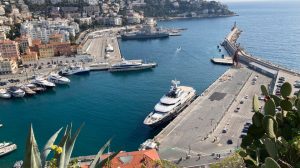In the wake of the Russian invasion of Ukraine in February 2022, global financial markets, political landscapes, and international relations have experienced significant shifts. One notable development that has captured attention is the abrupt change in ownership of a luxurious Sardinian resort, which took place just a day after the invasion commenced. This article explores the context and implications of this event, delves into the details surrounding the ownership transfer, and analyzes the broader ramifications for international business and politics.
Background of the Sardinian Resort
The Sardinian resort in question, located on the pristine Costa Smeralda, is a renowned luxury destination frequented by high-profile figures and celebrities. The resort’s exclusive amenities and breathtaking views make it a prized asset in the world of high-end real estate. It has long been associated with affluent individuals seeking privacy and opulence.
The Resort’s Previous Ownership
Before the invasion, the resort was owned by a Russian oligarch known for his extensive portfolio of luxury properties and investments worldwide. This individual had invested heavily in the resort, transforming it into one of the most sought-after vacation spots in Europe. The oligarch’s wealth and influence extended beyond the resort, impacting various sectors of the global economy.
The Invasion and Immediate Aftermath
On February 24, 2022, Russia launched a large-scale invasion of Ukraine, marking a significant escalation in the ongoing conflict between the two nations. The invasion prompted widespread condemnation from the international community and led to a series of sanctions aimed at Russian individuals and entities linked to the Kremlin.
The Day After the Invasion
The very next day, on February 25, 2022, a sudden and unexpected transaction occurred: the ownership of the Sardinian resort was transferred from the Russian oligarch to a new entity. This rapid shift raised questions about the motivations behind the transfer and the potential impact of the ongoing geopolitical situation on international business transactions.
Analysis of the Ownership Transfer
Motivations Behind the Transfer
The timing of the ownership transfer suggests several possible motivations:
- Asset Protection: The oligarch may have sought to protect his assets from the immediate financial and legal repercussions of international sanctions. By transferring ownership swiftly, he could potentially shield the resort from asset freezes or other punitive measures imposed by Western governments.
- Reputation Management: In the wake of the invasion, maintaining a positive public image became crucial. The oligarch might have aimed to distance himself from the conflict to avoid reputational damage associated with being linked to a controversial geopolitical event.
- Strategic Realignment: The shift in ownership could also reflect a strategic realignment of assets. With geopolitical tensions escalating, the oligarch may have decided to reallocate resources and investments to regions less affected by the conflict.
Impact of Sanctions
The imposition of sanctions on Russian oligarchs and their assets had immediate and far-reaching effects. Many high-profile individuals faced asset freezes, travel bans, and other restrictions, leading to a scramble to divest from high-value properties and investments. The Sardinian resort, being a high-value asset, became a focal point in this context.
The New Owner
The identity of the new owner of the Sardinian resort remains relatively opaque, with limited information available about the entity or individual who acquired the property. This anonymity might be strategic, aimed at avoiding scrutiny and maintaining privacy during a period of heightened geopolitical sensitivity.
Comparative Analysis
Ownership Transfer Before and After Sanctions
| Aspect | Before Sanctions | After Sanctions |
|---|---|---|
| Oligarch’s Influence | High; significant financial and political connections. | Reduced; under increased scrutiny and restrictions. |
| Asset Protection | Less urgent; fewer immediate risks. | High; rapid actions to mitigate financial and legal risks. |
| Reputation Management | Lesser focus; minimal immediate fallout. | Critical; urgent need to dissociate from controversy. |
| Transaction Speed | Standard timelines; less pressure. | Accelerated; driven by immediate geopolitical events. |
Implications for International Business
Financial Market Reactions
The rapid shift in ownership of high-value assets like the Sardinian resort underscores the volatility in international financial markets during times of geopolitical uncertainty. Investors and asset holders must navigate a landscape characterized by sudden and unpredictable changes.
Legal and Regulatory Considerations
The ownership transfer raises questions about the legal and regulatory frameworks governing such transactions. Jurisdictions must grapple with how to enforce sanctions and manage asset transfers involving individuals and entities subject to international restrictions.
Strategic Business Decisions
Businesses and investors may need to reassess their strategies and risk management approaches in light of geopolitical developments. The case of the Sardinian resort illustrates the need for agility and foresight in managing high-value assets during periods of international tension.
Conclusion
The ownership shift of the Sardinian resort, occurring a day after the Russian invasion of Ukraine, serves as a poignant example of how geopolitical events can precipitate rapid and strategic asset transfers. The motivations behind the transfer reflect a combination of asset protection, reputation management, and strategic realignment in response to the evolving international landscape. This case highlights the broader implications for international business, financial markets, and regulatory frameworks in times of geopolitical instability. As global tensions continue to evolve, stakeholders across various sectors must remain vigilant and adaptive to navigate the complexities of an increasingly interconnected world.





